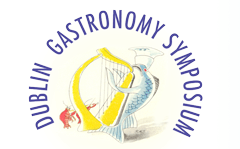Start Date
28-5-2024 2:15 PM
End Date
28-5-2024 2:30 PM
Description
Against the backdrop of mid-twentieth century Ireland, Edna O’Brien’s The Country Girls trilogy provides a rich literary case study through which to explore the intersection of food, gender, and sexual politics. From the theoretical perspective of feminist food studies, this article examines O’Brien’s use of food-based language to establish exposition and build character as well as how food propels plot; appetite, food choice, cooking, and dining rituals serve to tease out complex constructions of girlhood and womanhood just as these acts and impulses shape episodes of sexualisation and experiences of trauma. This article both contributes to scholarship on alimentary symbolism in Irish literature and brings sustained critical attention to the feminist potential of food in creative writing.
Creative Commons License

This work is licensed under a Creative Commons Attribution-NonCommercial-Share Alike 4.0 International License.
DOI
https://doi.org/10.21427/gg04-nf10
“I Was Doing Without Salt at That Time. As an Affectation”: Food, Gender, and Sexual Politics in Edna O’Brien’s The Country Girls
Against the backdrop of mid-twentieth century Ireland, Edna O’Brien’s The Country Girls trilogy provides a rich literary case study through which to explore the intersection of food, gender, and sexual politics. From the theoretical perspective of feminist food studies, this article examines O’Brien’s use of food-based language to establish exposition and build character as well as how food propels plot; appetite, food choice, cooking, and dining rituals serve to tease out complex constructions of girlhood and womanhood just as these acts and impulses shape episodes of sexualisation and experiences of trauma. This article both contributes to scholarship on alimentary symbolism in Irish literature and brings sustained critical attention to the feminist potential of food in creative writing.
